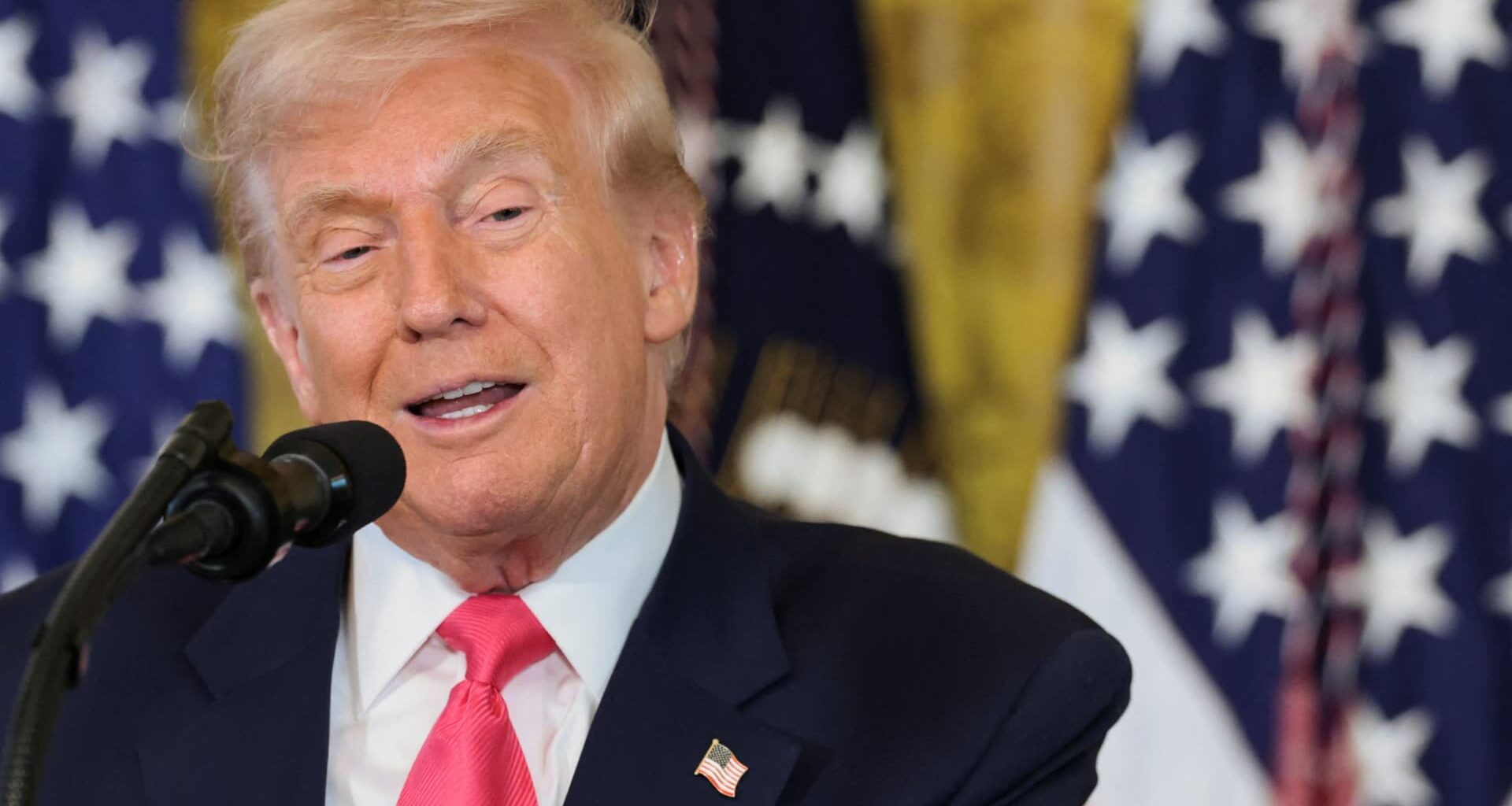U.S. President Donald Trump speaks on the day he is set to sign an executive order on “Fostering the Future” in the East Room of the White House, in Washington, D.C., U.S., Nov. 13, 2025.
Jonathan Ernst | Reuters
President Donald Trump on Friday exempted key agricultural imports like coffee, cocoa, bananas and certain beef products from his higher tariff rates.
The move comes as Trump faces political blowback for high prices at U.S. grocery stores. Some distributors of beef, coffee, chocolate and other common food items have raised prices as Trump’s tariffs took hold this year, adding to pressure on household budgets created by decades-high inflation in recent years.
Trump’s action Friday also exempts a range of fruits including tomatoes, avocados, coconuts, oranges and pineapples. Along with coffee, the tariff reductions extend to black and green tea, and spices like cinnamon and nutmeg.
The move marks a reversal for Trump, who has insisted tariffs are necessary to protect U.S. businesses and workers. He has contended U.S. consumers will not ultimately pay for the higher duties.
The tariff exemption for beef comes after months of rising prices tied in part to Trump’s own tariff policy.
Over the past year, the U.S. imposed steep duties on major suppliers including Brazil, Australia, New Zealand and Uruguay. Brazil – the world’s second-largest beef producer – has faced effective tariff rates topping 75%, driving down imports into the U.S. just as the cattle herd in the country hit a near 75-year low.
Ranchers have struggled to rebuild herds amid drought, higher feed costs and tariffs on fertilizer, steel and aluminum that have made equipment and repairs more expensive.
The supply squeeze has fueled a spike in prices at the grocery store: uncooked beef products rose 12% to 18% year over year in September, according to the most recent consumer price index report from the Bureau of Labor Statistics.
Producers told CNBC earlier this month that policy whiplash, from changing tariff rates to the recent expansion of Argentina’s beef quota, has further chilled long-term investment, keeping supplies tight and sentiment fragile.
Ground roast coffee prices in the U.S. reached $8.41 per pound in July, a record high and a 33% increase from a year ago, according to Bureau of Labor Statistics data.
Trump’s 50% tariff on Brazilian coffee – which supplies roughly a third of U.S. imports – drove up costs across the roasting and retail chains. Vietnam, Colombia and other major exporters have also been swept into the administration’s broader food-import tariff schedule.
Roasters and cafés say they have no way around the duties because the U.S. produces none of the beans it consumes, leaving importers exposed to higher costs regardless of origin. Small independent shops report 18%–25% jumps in wholesale prices this year, with many adding surcharges because menu prices can’t keep pace.
Retailers have warned the impact could have broadened if tariffs stayed in place. The Tax Foundation estimated in August that 74% of U.S. food imports faced tariffs, already hitting tea, spices and other products that, like coffee, have no domestic supply chain.
Global coffee prices are hovering near a 50-year high reached in February.
This is breaking news. Please refresh for updates.
